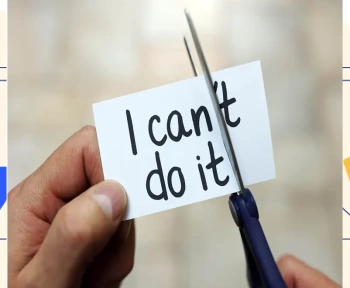20 Lessons From Atomic Habits by James Clear
The Art of Habit Formation: Building a Successful Life
Introduction
Have you ever wondered why some people seem to effortlessly achieve their goals while others struggle to make progress? The secret lies in the power of habits and the systems we create for ourselves. In this article, we’ll explore the intricate relationship between habits, success, and personal growth, uncovering the strategies that can help you build a life of continuous improvement and achievement.
The Power of Small Victories
Celebrating Incremental Progress
Success isn’t always about grand, sweeping achievements. More often than not, it’s the result of a series of small victories accumulated over time. Think about it: when you’re trying to lose weight, isn’t it more motivating to celebrate each pound lost rather than fixating on the final goal? These little wins build momentum and boost our confidence, propelling us forward on our journey to success.
The Compound Effect
Just as compound interest can dramatically grow your savings over time, small daily improvements compound to create significant long-term results. Each positive action, no matter how small, contributes to your overall progress. It’s like building a brick wall – one brick at a time might not seem like much, but before you know it, you’ve constructed something substantial.
Habits: The Architects of Our Lives
Creating Habits
We often think of habits as things we fall into, but the truth is, we have the power to intentionally create them. By consciously choosing and reinforcing positive behaviors, we can shape our daily routines to align with our goals and values.
Habits Shaping Us
Once established, habits become the invisible force that guides our actions and decisions. They’re like the operating system of our lives, running in the background and influencing everything we do. The habits we cultivate today will play a significant role in shaping who we become tomorrow.
Consistency Trumps Intensity
In the pursuit of our goals, it’s easy to fall into the trap of believing that intense, sporadic effort is the key to success. However, consistency often proves to be far more powerful. Think of it like watering a plant – a gentle, daily watering is much more effective than occasional drenching. The same principle applies to personal growth and achievement.
Streamlining Positive Behaviors
One of the most effective ways to build good habits is to remove obstacles that stand in their way. Want to exercise more? Lay out your workout clothes the night before. Trying to eat healthier? Stock your fridge with nutritious options and keep junk food out of sight. By making positive behaviors more convenient, you increase the likelihood of sticking to them.
Mastering Habit Tracking
To improve something, you first need to measure it. Becoming proficient at tracking your habits provides valuable insights into your behavior patterns and progress. Whether you use a simple notebook or a sophisticated app, consistent tracking helps you stay accountable and motivated.
Optimizing Your Workspace
Your environment plays a crucial role in shaping your habits and productivity. A well-organized, inspiring workspace can significantly boost your efficiency and creativity. Take the time to design a space that supports your goals and minimizes distractions.
The Time Investment in Good Habits
Developing good habits isn’t an overnight process – it requires patience and persistence. Remember, you’re not just changing behaviors; you’re rewiring your brain. Give yourself grace during this process and celebrate the small improvements along the way.
The Importance of Social Circles
The people we surround ourselves with have a profound impact on our habits and mindset. Choose your social group wisely, seeking out individuals who inspire and support your growth. As the saying goes, “You’re the average of the five people you spend the most time with.”
Preserving Hard-Earned Progress
Once you’ve made progress, it’s crucial to protect it. Don’t let temporary setbacks undo your hard work. Treat your advancements like valuable possessions, guarding them against complacency or regression.
The Path of Least Resistance
While challenges can be growth opportunities, constantly swimming against the current can be exhausting. Look for ways to align your goals with your natural inclinations and strengths. This doesn’t mean avoiding all difficulties, but rather finding a sustainable approach that plays to your strengths.
Accountability Partnerships
Having someone to share your journey with can be a game-changer. An accountability partner provides support, motivation, and a fresh perspective. They can celebrate your victories and help you stay on track when faced with obstacles.
Falling in Love with the Process
Success becomes much more attainable when you learn to enjoy the journey. Develop an affection for the daily grind, the small improvements, and even the challenges. When you love the process, the results will follow naturally.
The Shared Goals of Winners and Losers
Interestingly, winners and losers often start with the same goals. The difference lies in their approach, mindset, and most importantly, their habits. It’s not about having loftier ambitions, but about consistently taking the right actions to achieve them.
Success as a Lifestyle
Success isn’t a destination or a single event – it’s a way of life. It’s the culmination of your daily habits, decisions, and actions. By focusing on building a lifestyle that aligns with your definition of success, you’re more likely to achieve and maintain it.
Actions Speak Louder Than Words
In the end, you are defined by your actions, not your intentions or words. While setting goals and making plans is important, it’s the consistent execution that truly matters. Your habits and behaviors are the truest reflection of who you are and what you value.
Your Future Self
Every action you take today is shaping your future self. Your habits are like votes for the person you want to become. By consciously choosing positive habits, you’re actively creating a better version of yourself.
Habits as Predictors of Outcomes
Our outcomes are often a lagging indicator of our habits. The results we see today are typically the product of habits we’ve been practicing for weeks, months, or even years. This underscores the importance of patience and consistency in habit formation.
The Significance of Trajectory
While it’s easy to get caught up in where we are right now, what’s more important is the direction we’re heading. Your current trajectory, shaped by your habits and decisions, is a better predictor of your future than your present circumstances.
Systems vs. Expectations
Often, we fall short of our expectations not because of a lack of desire or effort, but because our systems don’t support our goals. You don’t rise to the level of your goals; you fall to the level of your systems. By focusing on building robust systems and habits, you create an environment where success becomes almost inevitable.
Conclusion
Building a successful life is less about grand gestures and more about the small, consistent actions we take each day. By understanding the power of habits, embracing the process of growth, and creating systems that support our goals, we can gradually transform ourselves and our lives. Remember, success is not a destination but a journey of continuous improvement and self-discovery. So start small, stay consistent, and watch as your little victories add up to create the life you’ve always dreamed of.
FAQs
- How long does it take to form a new habit?
While the popular notion suggests 21 days, research indicates it can take anywhere from 18 to 254 days, with an average of 66 days for a new habit to become automatic.
- Can bad habits be completely eliminated?
Rather than eliminating bad habits, it’s often more effective to replace them with positive ones. This approach addresses the underlying need while promoting healthier behaviors.
- How can I stay motivated when building new habits?
Focus on intrinsic motivation, track your progress, celebrate small wins, and remind yourself of the ‘why’ behind your goals.
- Is it better to focus on one habit at a time or multiple habits?
While it depends on the individual, focusing on one habit at a time often leads to better results as it prevents overwhelm and allows for more focused effort.
- How do I bounce back after breaking a good habit streak?
Don’t be too hard on yourself. Acknowledge the slip-up, understand what led to it, and immediately get back on track. Remember, consistency over time matters more than perfection.



